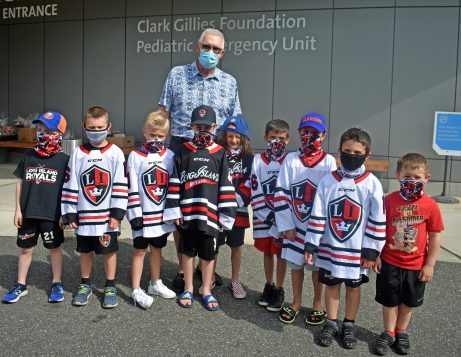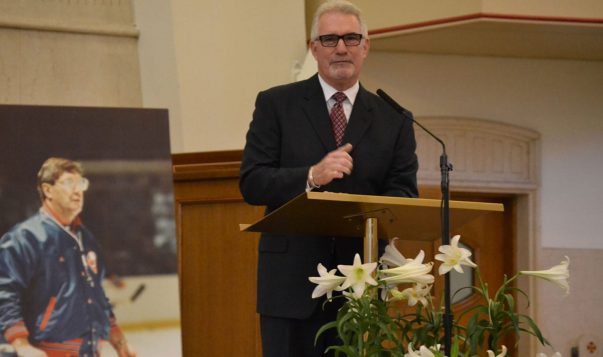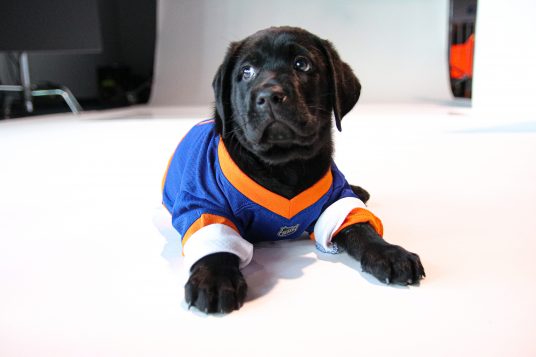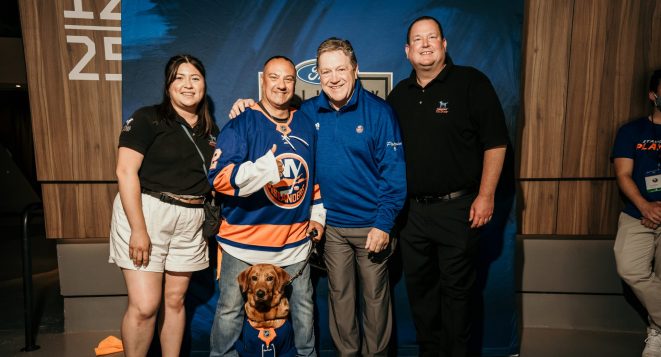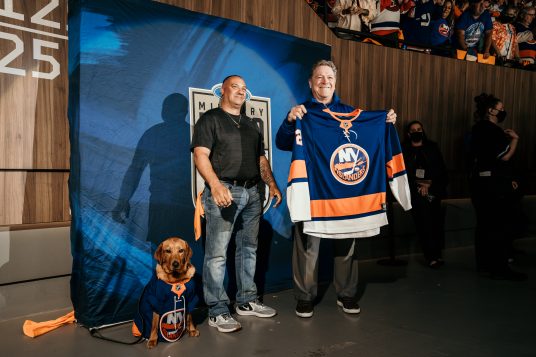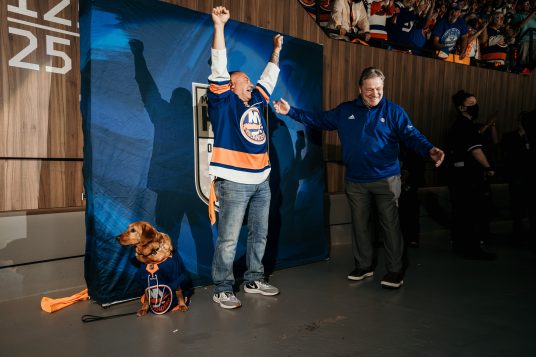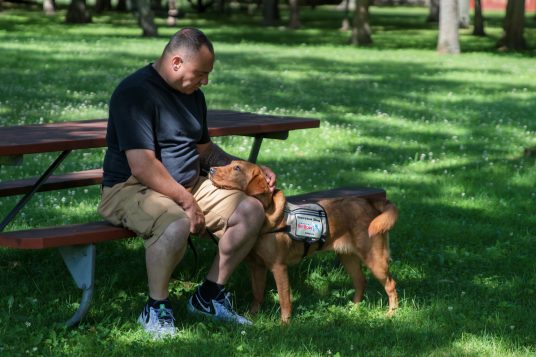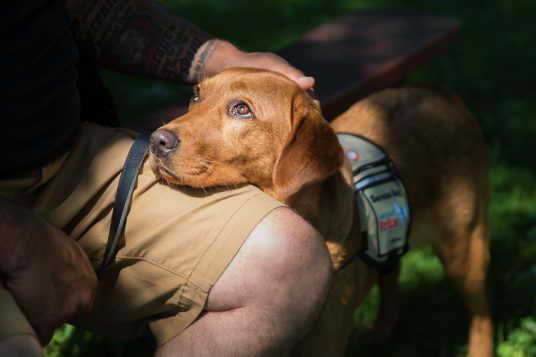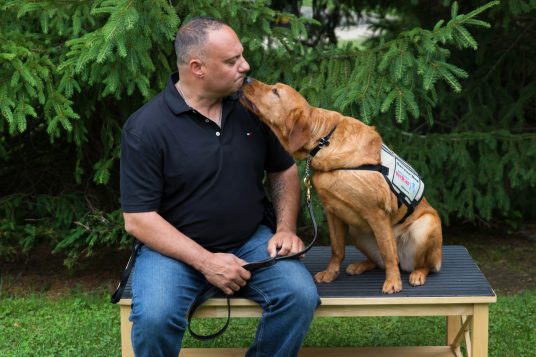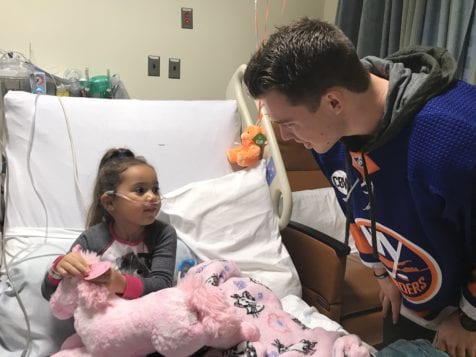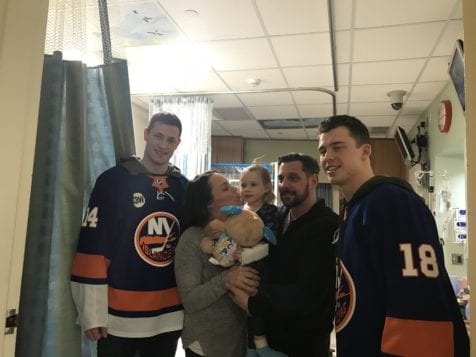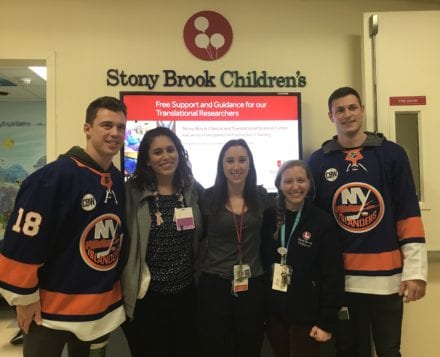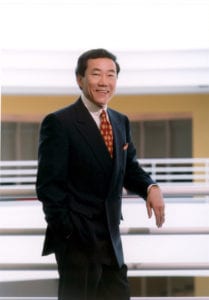Clark Gillies, a former member of the New York Islanders, died Jan. 21 at the age of 67. The Greenlawn resident played left wing for the Islanders when they won four consecutive Stanley Cup championships from 1980-83.
Members of Huntington’s Town Board, Supervisor Ed Smyth and councilmembers Eugene Cook, Joan Cergol, Dave Bennardo and Sal Ferro remembered the hockey player in a joint statement where they called him “a pillar of our community” and said he had a “larger-than-life personality.”
“His ice hockey career is legendary, eclipsed only by the great work he did after he hung up his skates,” the board wrote. “Clark always ensured that the spotlight reflected off of him onto a variety of worthy causes, including a new pediatric wing at Huntington Hospital.”
The hockey player founded the Hauppauge-based Clark Gillies Foundation. The nonprofit helps children who are physically, developmentally or financially challenged through medical services, family financial aid, events to enhance a child’s quality of life and more, according to the foundation’s website.
In addition to Huntington Hospital’s pediatric and pediatric emergency units named for Gillies, the foundation has also partnered with former Islander Pat LaFontaine’s organization to create the Brianna’s Cub Room at the hospital.
Huntington Hospital executive director, Dr. Nick Fitterman, commented on Gillies passing.
“On the ice, Clark Gillies was known as an enforcer, but to us at Huntington Hospital he was known for his friendship, generosity and work with children,” Fitterman said. “Mr. Gillies was an extremely kind and tender person, really a big teddy bear. He would deliver gifts to children during the holidays, and he treated everyone he met with respect. His legacy will live on through the Clark Gillies Pediatric Emergency Unit at Huntington Hospital. Our thoughts and prayers are with his family at this time.”
Kathleen Lanese, of Kings Park, and Elyse Henn, of Ronkonkoma, both worked on fundraisers with Gillies when he participated in the annual golf outings organized by the nonprofit Michael W. McCarthy Foundation. They also volunteered for the Clark Gillies Foundation in the past.
Lanese said it was a privilege meeting Gillies after watching him play for the Islanders when she would attend games with her father and described the hockey player as warm, generous and funny.
“In addition to his incredible work with his own foundation, he never hesitated to extend his generosity to other organizations,” Lanese said. “He supported all my charity events with sponsorships, signed jerseys and his presence — he never said no, and I usually didn’t even have to ask. He took a genuine interest in my boys, both on the autism spectrum, and how autism affected families like ours.”
Henn echoed the sentiments.
“He had enough smiles, love and stories for everyone,” Henn said. “He had a true love of life and his community. If you met him once, he treated you like a friend. He was truly one of a kind. Not just a hockey legend, but a true gentleman and friend. He will be truly missed. He had a zest for life that is inspiring.”
Before playing hockey, Gillies played three seasons of minor-league baseball with the Houston Astros farm team, according to the foundation’s website. When the Canadian native switched sports, he played junior hockey with the Regina Pats for three seasons in the Western Hockey League. He was drafted to the Islanders in 1974. He went on to be a 1st team All-Star in 1978 and 1979. He was MVP in the 1979 Challenge Cup series versus the Soviets, where he played for the Canadian team.
In 1986, Gillies was drafted to the Buffalo Sabres and in 1988 he retired from hockey. He was inducted into the Suffolk Sports Hall of Fame in 1998, and in 2002 he was elected into the NHL Hall of Fame.
According to Gillies’ obituary in The New York Times, he is survived by his wife, Pam; daughters Brianna Bourne, Jocelyn Schwarz and Brooke Kapetanakos; and eight grandchildren.

